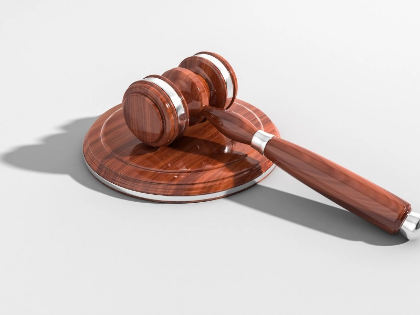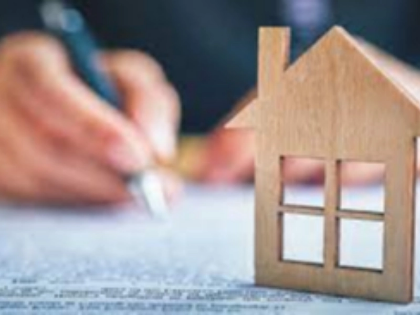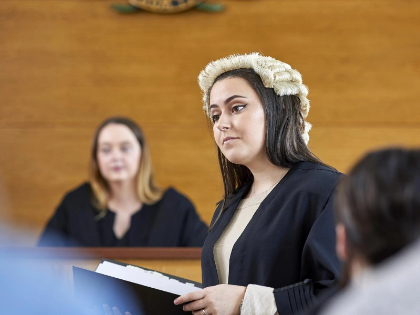Everything You Should Know About Getting Ready for Your Home's Closing
The day you officially become the owner of your new home is when you close on it. Before you can pick up the keys at closing, you will need to go over and sign a number of documents. The following advice will help you get ready for this crucial stage of the house-buying process.
1.Examine the finalized documents.
 The last step before your house becomes legally yours is closing on it. But a few slip-ups or delays might cause delays, so it's critical to be ready and aware of what to anticipate from the procedure.
You will sign a number of crucial documents pertaining to the terms of your loan and the transfer of ownership on closing day. Early in the closing process, it's a good idea to conduct a title check to help find any concerns that might impair your ownership rights to the property.
Also, now is a good time to get homeowners insurance, which you will need to pay for as part of your closing expenses according to your mortgage lender. Your Realtor can help if you're not sure how to do this and can even suggest businesses that offer this service. By doing this, you can make sure that your insurance is active on the day of your closing. By doing this, you'll be able to move into your new house with confidence and safeguard your investment.
The last step before your house becomes legally yours is closing on it. But a few slip-ups or delays might cause delays, so it's critical to be ready and aware of what to anticipate from the procedure.
You will sign a number of crucial documents pertaining to the terms of your loan and the transfer of ownership on closing day. Early in the closing process, it's a good idea to conduct a title check to help find any concerns that might impair your ownership rights to the property.
Also, now is a good time to get homeowners insurance, which you will need to pay for as part of your closing expenses according to your mortgage lender. Your Realtor can help if you're not sure how to do this and can even suggest businesses that offer this service. By doing this, you can make sure that your insurance is active on the day of your closing. By doing this, you'll be able to move into your new house with confidence and safeguard your investment.
2. Arrange for a Last Look.
 The last chance for a buyer to confirm the property is prepared for closing is during a final walk-through. Now is a perfect time to make sure any agreed-upon repairs have been finished and to test-run the appliances that come with the house. It's a good idea to bring a tape measure so you can make sure your furniture will fit in the house, as well as a camera and pen to record any faults you find during this visit.
If the house was occupied at the time you placed your offer, you should confirm that the sellers have cleared out all of their possessions and left the place immaculate. Utilizing this time to contrast the closing disclosure with the loan estimate your lender gave you initially is also a smart notion. Discrepancies could indicate a mistake by your lender or a surcharge you'll have to pay at closing.
The last chance for a buyer to confirm the property is prepared for closing is during a final walk-through. Now is a perfect time to make sure any agreed-upon repairs have been finished and to test-run the appliances that come with the house. It's a good idea to bring a tape measure so you can make sure your furniture will fit in the house, as well as a camera and pen to record any faults you find during this visit.
If the house was occupied at the time you placed your offer, you should confirm that the sellers have cleared out all of their possessions and left the place immaculate. Utilizing this time to contrast the closing disclosure with the loan estimate your lender gave you initially is also a smart notion. Discrepancies could indicate a mistake by your lender or a surcharge you'll have to pay at closing.
3. Arrange for the Last Examination
 You get one more chance to check if your new house satisfies all the conditions outlined in the contract during the final inspection. It's also an excellent chance to make sure that nothing was taken from the property, which could be against your contract, and that any repairs you requested were completed.
Because it can reveal hidden problems that might have arisen between the initial home inspection and your closing date, a final walk-through is crucial. This covers anything that can endanger you and your family, such as electrical or plumbing problems.
You will sign a ton of documents and pay costs on closing day, such as the lender's title insurance and a mortgage origination charge. Inquire with your lender about settling on these and other expenses. Additionally, you will need to bring cash for your down payment and closing charges, as well as identification from the government.
You get one more chance to check if your new house satisfies all the conditions outlined in the contract during the final inspection. It's also an excellent chance to make sure that nothing was taken from the property, which could be against your contract, and that any repairs you requested were completed.
Because it can reveal hidden problems that might have arisen between the initial home inspection and your closing date, a final walk-through is crucial. This covers anything that can endanger you and your family, such as electrical or plumbing problems.
You will sign a ton of documents and pay costs on closing day, such as the lender's title insurance and a mortgage origination charge. Inquire with your lender about settling on these and other expenses. Additionally, you will need to bring cash for your down payment and closing charges, as well as identification from the government.
4. Arrange for a Last Look.
 Crucial to the house-buying process is the last walk-through. It's the process of making that the seller has finished any agreed-upon renovations and that the property is in the same state as it was when your offer was accepted.
Regretfully, problems that crop up during the last walk-through have the potential to postpone or even ruin your closing date. For instance, there can be issues at closing if you discover that the sellers removed a shed that was meant to be part of the sale or left extra paint or tools in the garage.
It's a good idea to carry a camera and a pen to record any difficulties during the final walk-through. Bring a tape measure and calculator as well so you can make sure the furniture you intend to move in will fit. Also, it's a fantastic chance to confirm that every appliance functions. Make sure the carbon monoxide and smoke alarms are functioning properly, and test electrical outlets using your phone charger.
Crucial to the house-buying process is the last walk-through. It's the process of making that the seller has finished any agreed-upon renovations and that the property is in the same state as it was when your offer was accepted.
Regretfully, problems that crop up during the last walk-through have the potential to postpone or even ruin your closing date. For instance, there can be issues at closing if you discover that the sellers removed a shed that was meant to be part of the sale or left extra paint or tools in the garage.
It's a good idea to carry a camera and a pen to record any difficulties during the final walk-through. Bring a tape measure and calculator as well so you can make sure the furniture you intend to move in will fit. Also, it's a fantastic chance to confirm that every appliance functions. Make sure the carbon monoxide and smoke alarms are functioning properly, and test electrical outlets using your phone charger.











